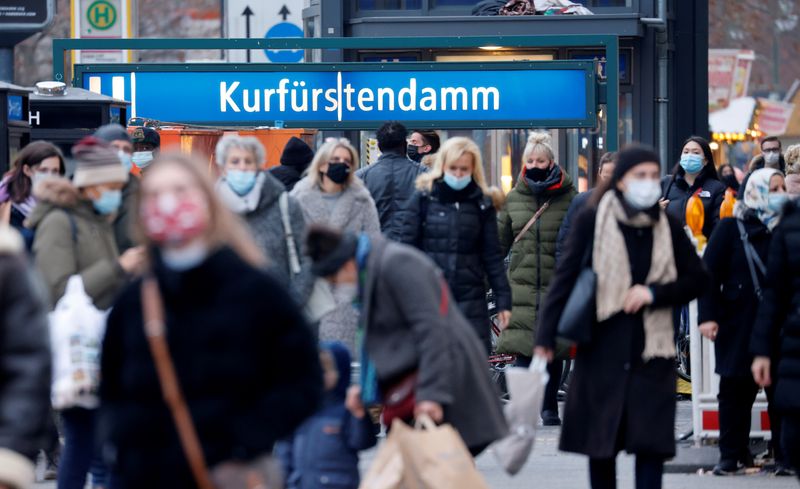BERLIN (Reuters) – German consumer morale is expected to recover slightly in November, a small reprieve after four consecutive months of record lows, though talk of a trend reversal is far too early at this point, according to a GfK institute survey on Thursday.
The institute said its consumer sentiment index rose to -41.9 heading into November, from a downwardly revised reading of -42.8 in October, and in line with forecasts from analysts polled by Reuters.
“It is certainly too early to speak of a trend reversal at the moment. The situation remains very tense for consumer sentiment,” said GfK consumer expert Rolf Buerkl.
With double-digit inflation and unabated concerns about security of energy supply, “it remains to be seen whether the current stabilization will last, or in light of the coming winter, there is reason to fear a further deterioration of the situation,” added Buerkl.
The economic expectations subindex was the only one to report a fall, dropping to -22.2 in October from -21.9 in September as consumers expect Europe’s largest economy to slip into recession, as also forecast by the government for 2023.
German inflation was at its highest in more than a quarter of a century in September, driven by high energy prices.
Analysts polled by Reuters currently expect October’s EU-harmonised consumer prices to rise 10.9% on the year. The statistics office is set to release preliminary numbers on Friday.
NOV 2022 OCT 2022 NOV 2021
Consumer climate -41.9 -42.8 1.0
Consumer climate components OCT 2022 SEP 2022 OCT 2021
– willingness to buy -17.5 -19.5 19.4
– income expectations -60.5 -67.7 23.3
– business cycle expectations -22.2 -21.9 46.6
NOTE – The survey period was from Oct. 6-17, 2022.
The consumer climate indicator forecasts the development of real private consumption in the following month.
An indicator reading above zero signals year-on-year growth in private consumption. A value below zero indicates a drop compared with the same period a year earlier.
According to GfK, a one-point change in the indicator corresponds to a year-on-year change of 0.1% in private consumption.
The “willingness to buy” indicator represents the balance between positive and negative responses to the question: “Do you think now is a good time to buy major items?”
The income expectations sub-index reflects expectations about the development of household finances in the coming 12 months.
The additional business cycle expectations index reflects the assessment of those questioned of the general economic situation in the next 12 months.
(Reporting by Miranda Murray, editing by Rachel More, Catherine Evans and William Maclean)
